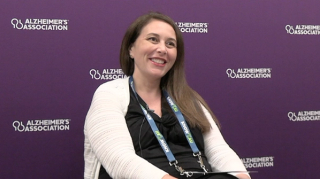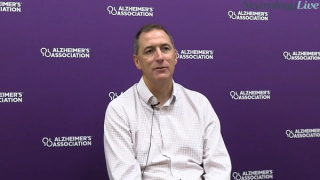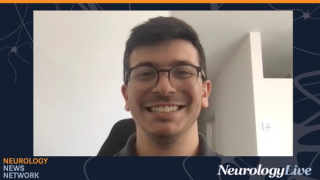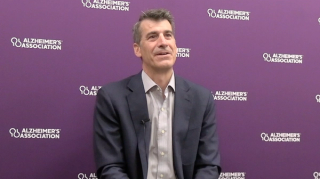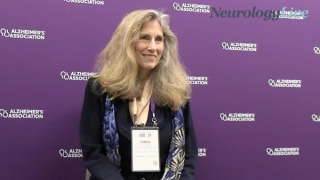
Dementia and Alzheimer Disease
Latest News


GLP-1 Agonist Semaglutide Offers Greater Neuropsychiatric Benefits Than Other Antidiabetics, Study Suggests
Latest Videos

CME Content
More News

Steve Herne, chief commercial officer at Unlearn, provided context on a recently conducted study assessing the company’s digital twin methodology AI tool to enhance the statistical certainty of Alzheimer trials.

William Hu, MD, PhD, FAAN, a neurologist at RWJBarnabas Health’s Robert Wood Johnson University Hospital in New Brunswick, NJ, shared new advances to detect and treat Alzheimer disease.
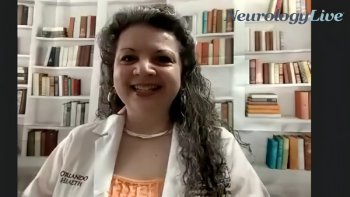
The director of academic clinical research at Orlando Health reflected on the journey of a blood test for traumatic brain injury to clinical use, highlighting the collaborative efforts and patient participation that made it possible. [WATCH TIME: 3 minutes]

Take 5 minutes to catch up on NeurologyLive®'s highlights from the week ending August 23, 2024.

The director of academic clinical research at Orlando Health talked about applying Abbott's blood test for suspected mild traumatic brain injury, providing results within 15 minutes, in the clinical practice. [WATCH TIME: 5 minutes]

Mind Moments®, a podcast from NeurologyLive®, brings you an exclusive interview with Sharon Cohen, MD. [LISTEN TIME: 20 minutes]

The medical director of the Toronto Memory Program at the University of Toronto gave clinical perspective on the promise of mivelsiran, an investigational RNA interference therapeutic, and the idea behind using RNA therapies to treat Alzheimer disease. [WATCH TIME: 5 minutes]
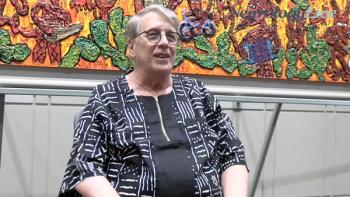
The professor of human genetics at the University of Miami discussed the significance of various genetic factors in Alzheimer risk and highlighted ongoing research, therapeutic challenges as well as the need for global collaboration. [WATCH TIME: 10 minutes]

The chief medical officer and head of Research & Development at Cognition Therapeutics discussed data from the phase 2 proof-of-concept SHINE study assessing CT1812, a small molecule oligomer antagonist, in early-stage Alzheimer disease.

The professor of human genetics at the University of Miami talked about the Alzheimer's Disease Sequencing Project which aims to provide diverse genetic data to identify therapeutic targets for Alzheimer disease. [WATCH TIME: 10 minutes]

The chairman and chief executive officer at Biomed provided insight on the hypothesis behind a new phase 3 study assessing NA-831, an agent with neurogenesis effects, with lecanemab, a previously approved drug for Alzheimer disease. [WATCH TIME: 7 minutes]

The Jerold B. Katz professor of neurology and neuroscience at Weill Cornell Medicine talked about a recent study that revealed patients who appeared unresponsive to verbal commands in vegetative or minimally conscious states retained high cognitive function. [WATCH TIME: 6 minutes]
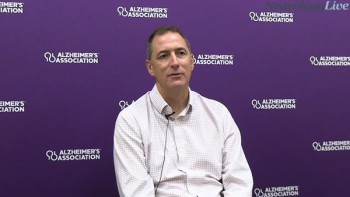
The professor of neurology and Diana Davis Spencer Foundation Chair at the Jackson Laboratory discussed the emerging importance of microglia in the context of Alzheimer disease research and its potential implications for clinical trials. [WATCH TIME: 4 minutes]

Test your neurology knowledge with NeurologyLive®'s weekly quiz series, featuring questions on a variety of clinical and historical neurology topics. This week's topic is on care of frontotemporal dementia.

Take 5 minutes to catch up on NeurologyLive®'s highlights from the week ending August 16, 2024.
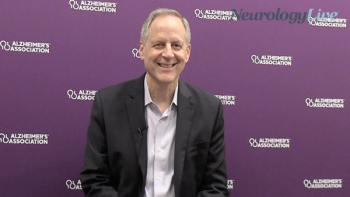
The director of the Cleveland Lou Ruvo Center for Brain Health at Cleveland Clinic discussed new diagnostic techniques that show promise for advancing the understanding of brain pathologies like Alzheimer and Lewy Body diseases. [WATCH TIME: 3 minutes]

The director of the Cleveland Lou Ruvo Center for Brain Health at Cleveland Clinic talked about challenges of accurately diagnosing dementia with Lewy bodies as well as new methods that show promise in guiding treatment. [WATCH TIME: 3 minutes]

Peter Vanderklish, PhD, chief science officer at Spingogenix, commented on a recently initiated phase 2 trial assessing investigational SPG302, a synaptic-regenerative agent in development for Alzheimer disease.

The CEO and cofounder at Advanced Brain Monitoring talked about a study presented at AAIC 2024 that explored the use of EEG biomarkers to differentiate between Alzheimer disease and frontotemporal dementia.

Here's some of what is coming soon to NeurologyLive® this week.

Take 5 minutes to catch up on NeurologyLive®'s highlights from the week ending August 9, 2024.

Anavex Life Sciences intends to submit a full regulatory application for blarcamesine as a potential treatment for AD in Europe by Q4 2024.

Catch up on any of the neurology news headlines you may have missed over the course of July 2024, compiled all into one place by the NeurologyLive® team.

The positive data from this Phase 1a trial will inform the dosing for the upcoming Phase 1b portion in patients with AD, expected to commence in the second half of 2024.

The personalized medicine lead at Linus Health provided clarity on a new outcome measure that captures various perspectives about what matters to individuals and their brain health.




